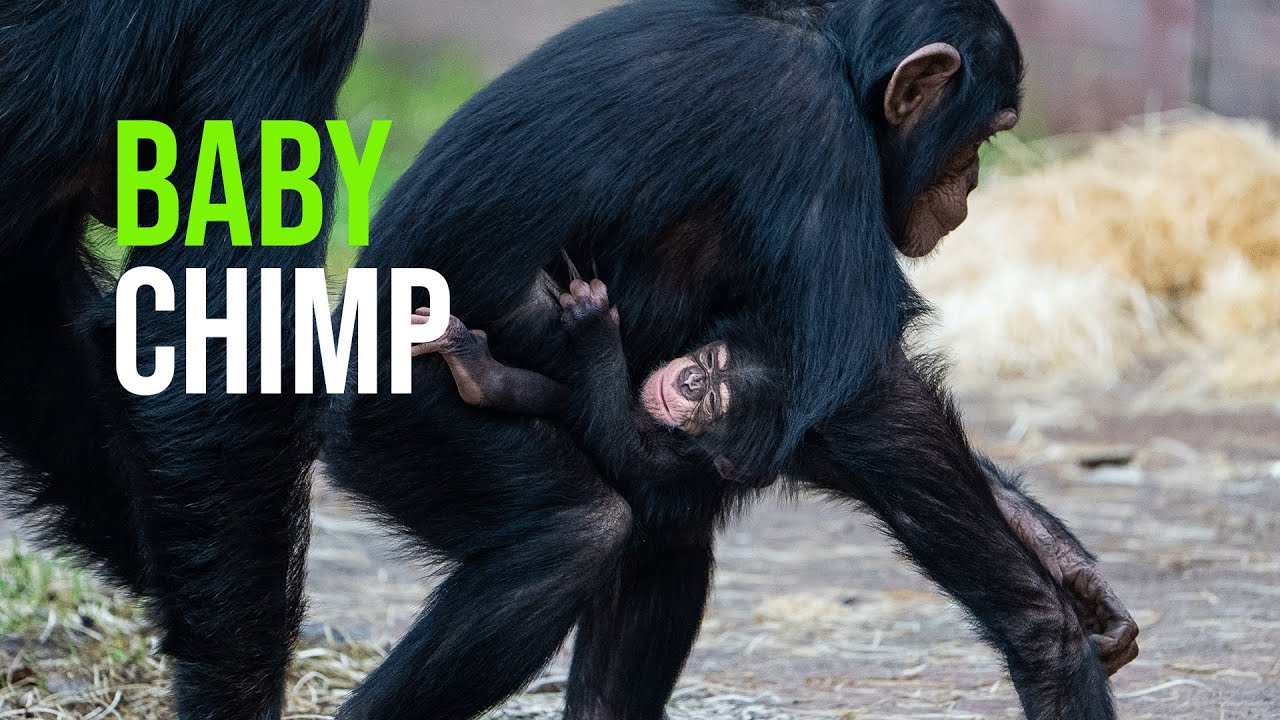The birth of a rare chimpanzee at Chester Zoo brings new hope for conservation efforts
– Importance and challenges of breeding programs in zoos for critically endangered species
– Conservation and research efforts necessary for the survival of chimpanzees in the wild
– The role of public engagement and educational initiatives in wildlife conservation
The recent birth of a rare chimpanzee at Chester Zoo has infused optimism into the ongoing efforts to conserve critically endangered species. This event highlights the vital role of well-managed zoos and their breeding programs in the broader conservation landscape. As habitat loss, poaching, and disease continue to threaten chimpanzee populations in the wild, ex-situ efforts such as those undertaken by zoos become increasingly essential.
Breeding programs in zoos face numerous challenges ranging from genetic diversity to the physical and psychological well-being of the animals. In the case of the rare chimpanzee born at Chester Zoo, the success represents years of careful planning, expert veterinary care, and an understanding of the complex social structures of these intelligent primates. The aim is to mimic the natural conditions as closely as possible to foster a healthy, socially integrated group that can contribute valuable genetics to the population.
Conservation cannot be confined to activities within zoo boundaries for critically endangered species like the chimpanzee. Chester Zoo actively participates in and supports conservation efforts in the wild, contributing to the protection of habitats and implementing community-based conservation initiatives. This approach extends the impact of the birth of a rare chimpanzee, linking it to broader efforts to ensure the species’ survival in their natural habitats.
Public engagement and educational initiatives play a critical role in conservation. The birth of a rare chimpanzee at Chester Zoo is a powerful tool for raising awareness about the plight of this species and the importance of conservation efforts. Through exhibits, educational programs, and media coverage, zoos uniquely connect people with wildlife, fostering a culture of care and support for conservation efforts.
The birth of a rare chimpanzee at Chester Zoo offers more than hope for the future of endangered species; it underscores the importance of integrated conservation efforts that span from in-situ to ex-situ initiatives. By working closely with local communities, governments, and international organizations, zoos like Chester can contribute significantly to the global efforts to conserve our planet’s biodiversity. This event does not mark the culmination but rather a promising chapter in the ongoing story of chimpanzee conservation.
*****
Source Description
Primate conservationists are celebrating the birth of the world’s rarest chimpanzee at Chester Zoo @chesterzoo.
New mum ZeeZee, a critically endangered Western chimpanzee, safely delivered the tiny baby boy after an eight-month pregnancy.
Great ape experts at the conservation zoo have revealed that the new male arrival is in good health and has spent the first few weeks of life bonding with mum and the rest of the 22-strong troop.
In a longstanding tradition among conservationists, the youngster will be named after a rockstar or famous pop icon to help boost the profile of the highly threatened species.
As few as just 18,000 Western chimpanzees remain across Africa, and they are the first subspecies of chimpanzee to be declared critically endangered by the International Union for the Conservation of Nature (IUCN). Primatologists say that the birth gives further ‘hope’ to efforts to ensure the long-term survival of the species.
Andrew Lenihan, Team Manager at Chester Zoo, said:
“We’re incredibly proud to see a precious new baby in the chimpanzee troop. Mum ZeeZee and her new arrival instantly bonded, and she’s doing a great job of cradling him closely and caring for him.
“A birth always creates a lot of excitement in the group, and raising a youngster soon becomes a real extended family affair. You’ll often see the new baby being passed between other females who want to lend a helping hand and give ZeeZee some well-deserved rest, and that’s exactly what her daughter, Stevie, is doing with her new brother. It looks like she’s taken a real shine to him, which is great.
“For decades, we have been naming baby chimpanzees after famous rock and pop stars to help raise urgent attention for this charismatic species. We’ve previously welcomed Dylan (Bob), Alice (Cooper), and Annie (Lennox), so watch this space!
“He may not know it, but ZeeZee’s new baby is a small but vital boost to the global population of Western chimpanzees when it’s most needed for this critically endangered species.”
The apes are under huge threat in the wild as a result of hunting for the illegal bush meat trade, diseases spread by humans and extensive habitat loss and forest destruction across West Africa.
Mike Jordan, Animal & Plant Director at the zoo, added:
“In the last 25 years alone, the world has lost 80 percent of its Western chimpanzee population, so the arrival of a healthy baby here at Chester offers us real hope that we can help turn things around for this species.
“We’re in the midst of a global extinction crisis. The UN estimates that one million species could be wiped out in our lifetime. But, as a world-leading conservation zoo, we’re doing everything possible to halt and reverse this. Our teams have worked in Uganda, Nigeria and Gabon to help protect wild chimpanzee populations and their forest homes. This work, paired with the endangered species breeding program in conservation zoos, will help protect the endangered species from being lost forever.”
Small populations of the Western chimpanzee are still found in West Africa, ranging from Senegal to Ghana, but they have sadly become extinct in Benin, Burkina Faso, and Togo.
Chester Zoo is actively involved in the conservation of some of the world’s rarest chimpanzees in Africa and has supported efforts to protect the last stronghold of the Nigeria-Cameroon chimpanzee in Gashaka Gumti National Park in Nigeria for more than 20 years.


